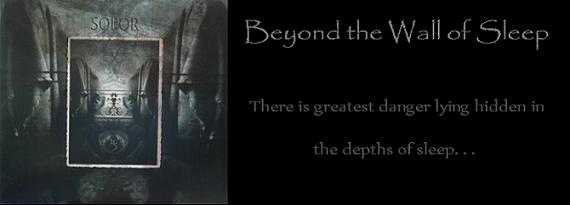I will resume blogging with some regularity soon, but in the interim perhaps my reading list will be of interest to some. I noticed, near the end of the semester, that my usual pace in getting through books had slowed considerably. Now that my schedule has loosened up a bit, I'm trying to get back on my usually schedule.
RECENTLY READ
-------------------------
Gottfried Leibniz, Philosophical Essays
I've never liked Leibniz, as you can imagine. 300 pages of blathering about "windowless monads" didn't change that.
Robert C. Solomon and Kathleen M. Higgins, What Nietzsche REALLY Said
An entertaining, though occasionally annoying in its sympathy, explanation of much of Nietzsche's more obtuse and oft-misunderstood nonsense. I have spent years away from Nietzsche and this book is one of the last in my attempt to reacquaint myself with his thought.
Nietzsche's books are what introduced me to philosophy when I was in high school. However, though I was initially impressed, the more I read the more I began to despise him. The final straw (well, straws) was his belligerent criticism of Darwin and defense of Lamarck--which, oddly enough, he made in a manner identical to the manner of defense he often criticized. And--in "Human, All Too Human", I believe--him saying that there are no absolute truths. One is tempted to ask, "What do you think you've just uttered, Fred?" The most frustrating aspect, of course, is that Nietzsche was fully aware that he was wallowing in contradictions. He didn't care.
Unfortunately, since my particular interest in philosophy is the philosophy of history, I will encounter a lot of Nietzsche.
Jacques Barzun, The House of Intellect
This book should have been much better than it was, especially given its topic, which is the intellectuals' betrayal of the intellect. After reading "From Dawn to Decadence", I expected more out of Barzun.
Hayden White, Metahistory: The Historical Imagination in Nineteenth-Century Europe
Again, the philosophy of history--and historiography. White is one of the five biggest names in the field in the past fifty years (despite not actually being a philosopher; he is more of a literary theorist masquerading as a historian). Of course, he concludes, after much seemingly endless rambling, that "tropes"--styles of discourse, such as synecdoche, irony, metaphor and allegory--are what determine the nature and content of histories (that is, historians' writings on history). I don't think I have to point out the postmodern relativistic historiography that this implies. And I don't think I have to point out that I find the whole pile of nonsense insufferable.
I did write a review of this... book. I may put it up here if I thinks its up to snuff after I give it a good once-over.
Martin Amis, Koba the Dread: Laughter and the Twenty Million
As far as books on Soviet history go, as well as books about the horrors of Stalinism, you could do much better than this book. See Tucker's "Stalin in Power"; most of the work by Robert Conquest on Soviet Russia--especially "The Great Terror -- A Reassessment"; "The Black Book of Communism" by Courtois, et. al.; "Russia under the Bolshevik Regime" by Richard Pipes.
This book is a dreadful read. I don't know who taught Amis to write (hopefully, it wasn't his father, the novelist Kingsley Amis, who was not the greatest writer himself, but certainly better than the choppy, meandering prose of "Koba").
Ayn Rand, The Foutainhead and Atlas Shrugged
It's been two years since I last read "Atlas Shrugged" and four since I last read "The Fountainhead". I needed to read these, for spiritual fuel.
READING
--------------
Robert Mayhew (ed.), Essays on Ayn Rand's Atlas Shrugged
This just came in the mail and I am enjoying the hell out of it so far.
Alva Noe, Out of Out Heads: Why You Are Not Your Brain and Other Lessons from the Biology of Consciousness
I bought this after reading Harry Binswanger's review on HBL. I have to say, interesting so far. It's fun to watch one of the new breed of philosopher/neuroscientists calling everyone else in his milieu on their bullshit, and coming up with good arguments against them on top of it.
Keith Winschuttle, The Killing of History
Rereading this one. Some of Windschuttle's arguments could strike deeper, on a more fundamental philosophical level (given the errors in is his own philosophy, I didn't expect as much going in anyway). But this is still a striking polemic. And it's all kinds of fun reading his fisking of all the literary critics, social theorists and sundry postmodern and relativist entities that pass for intellectuals these days.
IN THE QUEUE
----------------------
Laura J. Snyder, Reforming Philosophy: A Victorian Debate on Science and Society
Emanuel Derman, My Life as a Quant: Reflections on Physics and Finance
A.O. Lovejoy, Essays in the History of Ideas
Ludwig von Mises, Theory and History: An Interpretation of Social and Economic Revolutio
Victor Hanson, Carnage and Culture: Landmark Battles in the Rise to Western Power
Ralph Lerner, The Thinking Revolutionary: Principle and Practice in the New Republic
David S. Wyman, A Race Against Death: Peter Bergson, America, and the Holocaust
Jim Powell, Bully Boy: The Truth about Theodore Roosevelt's Legacy
John Clive, Not By Fact Alone
Gregory Cochran and Henry Harpending, The 10,000 Year Explosion: How Civilization Accelerated Human Evolution
Isaiah Berlin, Three Critics of the Enlightenment: Vico, Hamann, Herder
I read three books a week on average, so I like to keep the list of "on deck" books at about 10-12.
I have plenty on my plate as it is, but any suggestions are welcome.
-M.

No comments:
Post a Comment